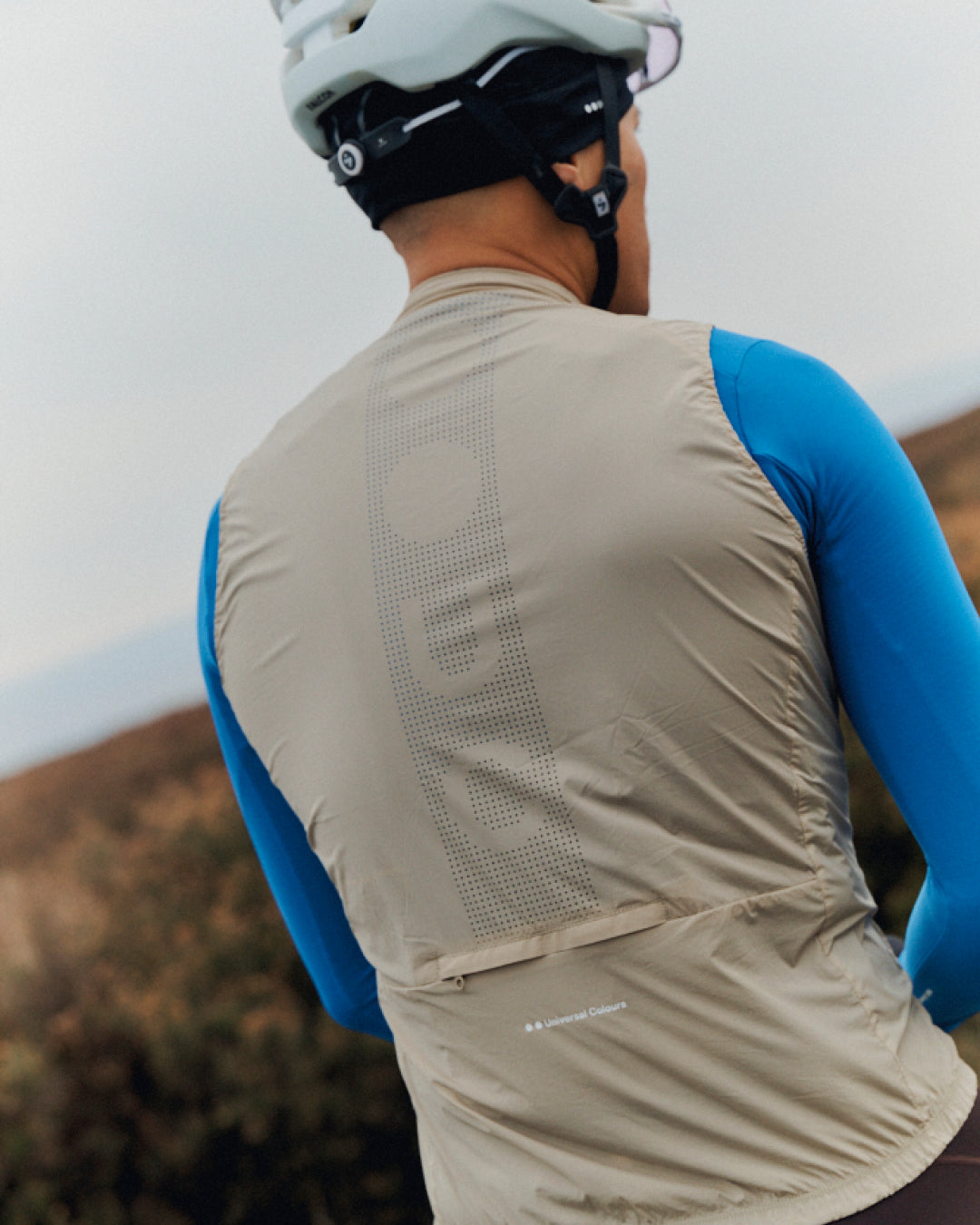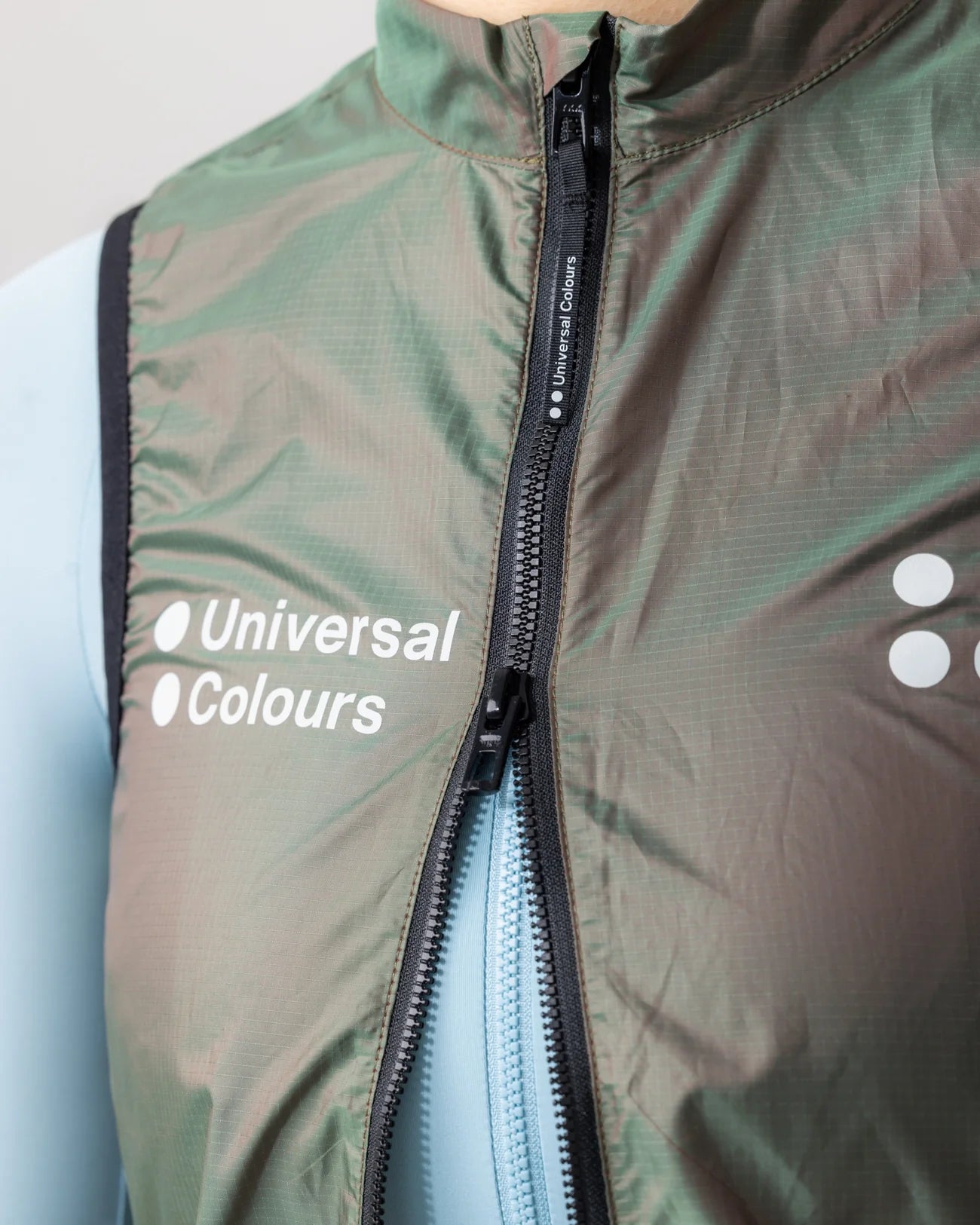The synergy between our core values and the factories and mills we work with is imperative. A collaborative approach allows us to create the most carefully considered, high-quality product possible. We only work with factories that are internationally audited for social and environmental good practice, and this will never change.

At Universal Colours, we are proud of our clothing’s journey and believe strongly in transparency and ethical practice. We would like to share our approach towards our choices for the fabrics in our collections as well as the factories we have chosen as our partners.
Our clothing is made globally. The majority of our garments are produced at LTP in Lithuania, one of Europe’s most renowned sportswear manufacturers and a bluesign® accredited factory. The bluesign® system is a comprehensive production control system designed to limit the impact of textile manufacturing on human health and the environment. Open-minded, progressive and flexible, LTP doesn’t just embrace, but actively promotes the creativity necessary to develop our clothing. We are also working with a factory in China and Taiwan for select pieces and accessories in our collections. Both factories are internationally audited for social and environmental good practice.
Similarly, we work with mills across the world. Two prime examples are M.I.T.I. S.P.A. in Italy, a leading manufacturer of stretch jersey fabrics and Payen in France, the European leader in elastic yarns and stretch fabrics. To keep our carbon footprint to a minimum, we try to select fabrics that are manufactured within the same region as the factories.

We aren’t always looking at sustainability from the perspective of using recycled raw materials. As cyclists, we understand that our kit has a tough life through repetitive use and washing. Ensuring our kit is durable is as important to the wider sustainability issue as the production itself.
Every Universal Colours piece has been meticulously designed, re-designed and tested. The highly technical fabrics and materials we choose for our clothing are essential in making sure you experience the best possible performance, fit and comfort on your ride. With our fabrics, we have looked at how we can instil durability in our collections. There is still work to be done to ensure all recycled fabrics can be as high performing and durable as we need. The industry on a wider scale is not yet ready to replace all performance yarns with recycled alternatives. Our team is constantly challenging and pushing our suppliers to create recycled or bio-based yarns that perform as well, or better, than virgin materials. We are working to develop some really interesting options, using both post-consumer and pre-consumer waste. However, we will always look at the performance of the fabrics first and we will never compromise on that.
All our bib shorts and tights feature Elastic Interface® Technology cycling pads for enhanced performance and comfort. We are using recycled yarns as well as recycled PET zips across our range.
For each of our garments, you will find their fit, fabric and functional benefit outlined and we are working on a more detailed guide to all the fabrics we use in our collections. For now, there are a few fabrics that we would like to highlight in particular.
French woven nylon
Featured in our Chroma bib shorts and jerseys, this woven fabric’s abrasion resistance is much higher than the knit equivalent and is about 35% lighter. The fabric is more opaque, absorbs less water and can be stretched in both directions at the same time making it very comfortable next to the skin. It is the pinnacle of durable, compressive cycling wear. The fabric is OekoTex® 100 certified, which guarantees no harmful dyes or chemicals were used during the production process. The fabric is manufactured by Payen in France. Their sites have energy-efficient industrial water reuse systems to minimise water use and as wovens are intrinsically lighter than knit fabrics, less material is used reducing transport emissions, material use and water use further.
Woven merino blend
You will find a compressive yet unrestrictive woven nylon and merino wool blend in our Chroma thermal bib tights, short and warmers. Whilst nylon offers high durability, merino provides excellent thermal, moisture and bacterial management. All pieces are finished with an environmentally friendly, fluorocarbon-free durable water repellent (DWR), called C0. It's a fully sustainable, vegetable-based technology.
Post-consumer waste polyester and pre-consumer waste elastane
Featured in the vast majority of our range, pre-consumer waste fabrics are scraps and damaged garments from the factory that are repurposed and spun into yarns again. Post-consumer waste fabrics have gone through the recycling process and are repurposed as new yarn and knitted into new fabric.
If you have any questions or suggestions for our team, please get in touch by visiting our contact page.




